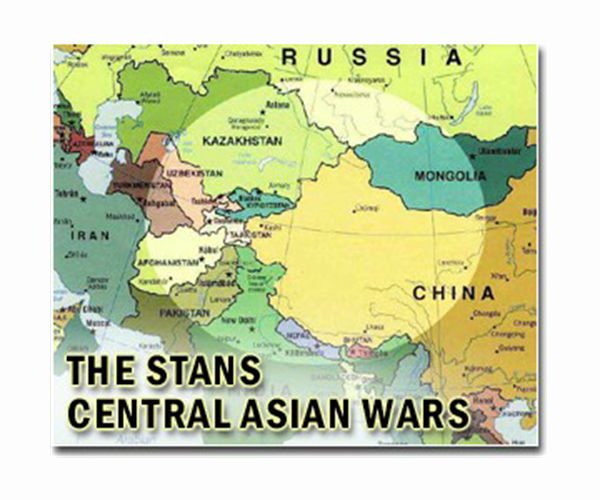UN rights chief says China violating ‘fundamental rights’ in Xinjiang, Tibet
by AFP Staff Writers
Geneva (AFP) March 4, 2024
UN human rights chief Volker Turk on Monday said China was violating fundamental rights in its Xinjiang and Tibet regions and called on Beijing to change course.
Turk, who has been criticised for not challenging China strongly enough over human rights, also asked Beijing to release rights defenders arrested under the “vague” offence of “picking quarrels and making trouble”.
Turk called on Beijing to implement recommendations made by his office and other human rights bodies “in relation to laws, policies and practices that violate fundamental human rights, including in the Xinjiang and Tibet regions”.
“I am engaging with the Hong Kong authorities on continuing concerns about national security laws,” he added, in his global update to the UN Human Rights Council.
In the northwestern Xinjiang region, China is accused of incarcerating more than one million Uyghurs and other Muslim minorities. Beijing vehemently rejects the charges.
A bombshell report by Turk’s predecessor Michelle Bachelet — released just minutes before her term ended in 2022 — cited possible “crimes against humanity” in Xinjiang.
The report, flatly rejected by China, detailed “credible” evidence of torture, forced medical treatment and sexual or gender-based violence — as well as forced labour.
But it stopped short of labelling Beijing’s actions in Xinjiang a “genocide”, as the United States and some Western lawmakers have done.
China denies allegations of abuse and insists it is running vocational training centres in Xinjiang which have helped to combat extremism and enhance development.
– ‘Baseless allegations’ –
Turk said his office was in talks with China on counter-terrorism policies, gender equality, minority protection, civic space, and economic, social and cultural rights.
“As we move forward, it is important that this dialogue yield concrete results,” he said.
Turk recognised China’s advances in development and in alleviating poverty, but urged that such policies be accompanied by reforms “to align relevant laws and policies with international human rights standards”.
“I particularly encourage revision of the vague offence of ‘picking quarrels and making trouble’ in Article 293 of the Criminal Law, and I urge the release of human rights defenders, lawyers and others detained under such legislation,” he said.
In response, China’s ambassador Chen Xu called for countries to “resist the practice of using human rights as a pretext to interfere in internal affairs” and stop “imposing one’s own values and development models on others”.
“We are willing to carry out dialogue with all countries on human rights, but resist baseless allegations against my country, by any country.”
In January, China received stinging criticism from Western countries during a regular review of its rights record at the United Nations, but other nations praised Beijing, including Russia and Iran.
Western countries highlighted a crackdown on civil liberties and a sweeping national security law imposed on Hong Kong in 2020 to quash dissent after pro-democracy protests.
Others voiced alarm at alleged efforts to erase cultural and religious identity in Tibet, and repression in Xinjiang.
China insisted it was making strides to improve the lives of its people, end poverty and protect rights. It has slammed critics for “politicising and weaponising” rights issues.
Related Links
The content herein, unless otherwise known to be public domain, are Copyright 1995-2023 – Space Media Network. All websites are published in Australia and are solely subject to Australian law and governed by Fair Use principals for news reporting and research purposes. AFP, UPI and IANS news wire stories are copyright Agence France-Presse, United Press International and Indo-Asia News Service. ESA news reports are copyright European Space Agency. All NASA sourced material is public domain. Additional copyrights may apply in whole or part to other bona fide parties. All articles labeled “by Staff Writers” include reports supplied to Space Media Network by industry news wires, PR agencies, corporate press officers and the like. Such articles are individually curated and edited by Space Media Network staff on the basis of the report’s information value to our industry and professional readership. Advertising does not imply endorsement, agreement or approval of any opinions, statements or information provided by Space Media Network on any Web page published or hosted by Space Media Network. General Data Protection Regulation (GDPR) Statement Our advertisers use various cookies and the like to deliver the best ad banner available at one time. All network advertising suppliers have GDPR policies (Legitimate Interest) that conform with EU regulations for data collection. By using our websites you consent to cookie based advertising. If you do not agree with this then you must stop using the websites from May 25, 2018. Privacy Statement. Additional information can be found here at About Us.
